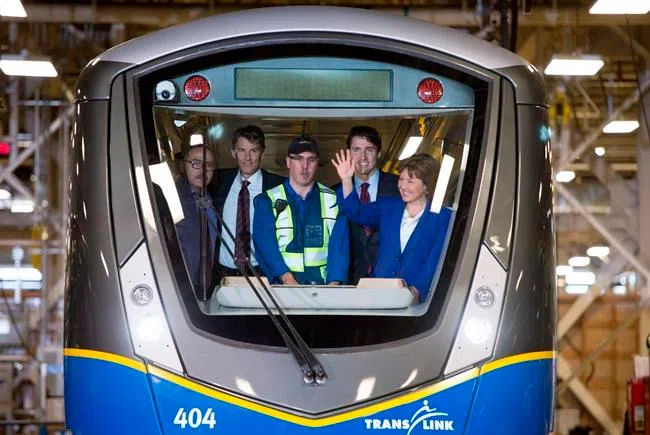
B.C. first in line for major transit upgrades as Trudeau hands over vowed cash
BURNABY, B.C. — British Columbia has become the first province to reap dollars for its transit system under the federal government’s ambitious multibillion-dollar infrastructure program, with more deals expected to be signed elsewhere in Canada next week.
Prime Minister Justin Trudeau said Ottawa will hand B.C. its previously earmarked $460 million to help pay for upgrades to existing transit infrastructure, including renovations to aging stations and buying new rapid-transit cars.
“I’m proud that the very first such agreement that we’ve signed is right here in British Columbia, although we are working hard to close deals with other provinces,” Trudeau said Thursday at the SkyTrain operations centre in Burnaby.
He said $370 million has been allocated for transit projects in Metro Vancouver, while a total of $934 will be invested in public transit across B.C. when provincial and municipal contributions are included.


